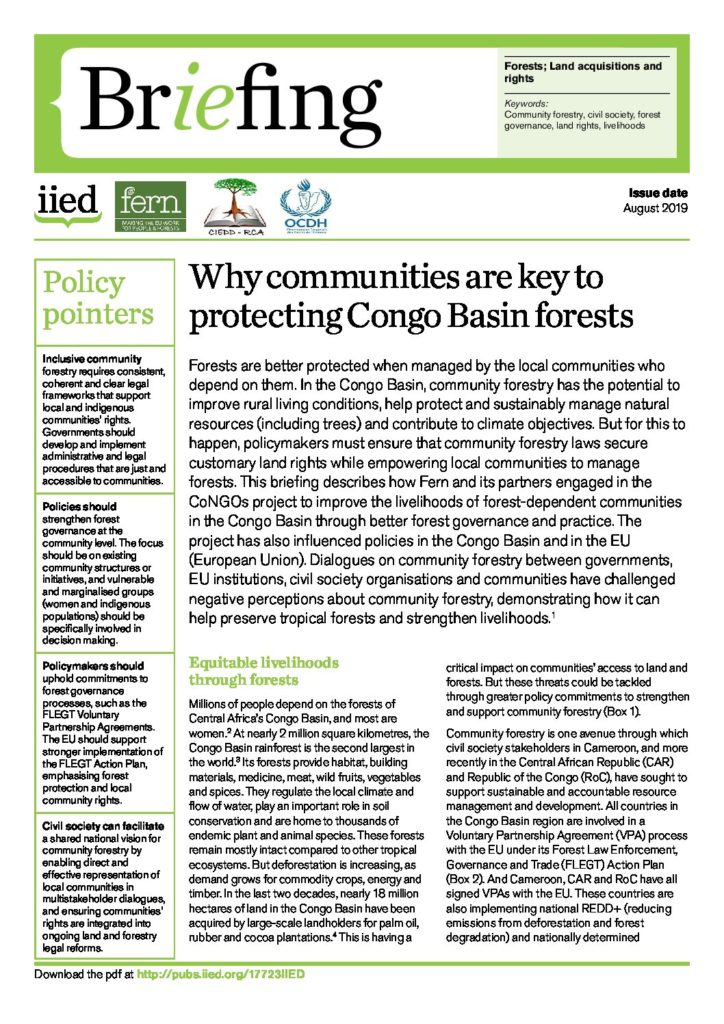
Forests are better protected when managed by the local communities who depend on them. In the Congo Basin, community forestry has the potential to improve rural living conditions, help protect and sustainably manage natural resources (including trees) and contribute to climate objectives. But for this to happen, policymakers must ensure that community forestry laws secure customary land rights while empowering local communities to manage forests. This briefing describes how Fern and its partners engaged in the CoNGOs project to improve the livelihoods of forest-dependent communities in the Congo Basin through better forest governance and practice. The project has also influenced policies in the Congo Basin and in the EU (European Union). Dialogues on community forestry between governments, EU institutions, civil society organisations and communities have challenged negative perceptions about community forestry, demonstrating how it can help preserve tropical forests and strengthen livelihoods.
